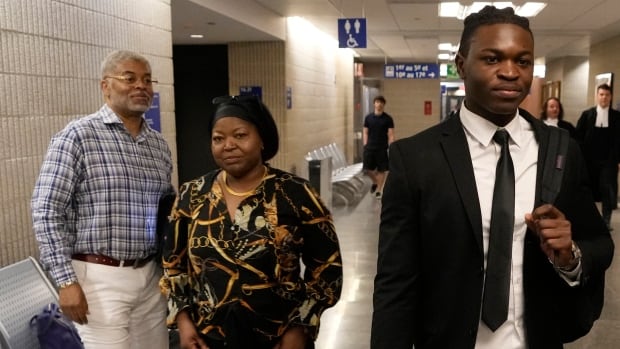
Police motor vehicle stops without cause are a violation of the Canadian Charter of Rights and Freedoms, Quebec Superior Court ruled Tuesday.
The decision won’t put an end to racial profiling overnight, Judge Michel Yergeau wrote in his ruling, but the court is giving authorities six months to adjust laws so police can no longer pull people over without a reason, such as a traffic violation.
“Racial profiling does exist. It is not a laboratory-constructed abstraction. It is not a view of the mind. It is a reality that weighs heavily on Black communities. It manifests itself in particular among Black drivers of motor vehicles,” Yergeau said.
“Charter rights can no longer be left in thrall to an unlikely moment of epiphany by the police. Ethics and justice must go hand in hand to turn this page.”
The time has come for the judicial system to recognize and declare that this “unbounded power” violates some right guaranteed to the community, the court said.
This decision comes after Montrealer Joseph-Christopher Luamba, a 22-year-old Black man, told the court he gets ready to pull over whenever he sees a police cruiser.
In the 18 months after he got his driver’s licence in March 2018, Luamba said he was stopped by police around 10 times for no specific reason. He said he was driving a car during about half the stops and was a passenger in another person’s car during the other police stops.
Those traffic stops were at the heart of the lawsuit that he filed against the Canadian and Quebec governments. The case began in May of this year.
Luamba said he believes he was racially profiled during the traffic stops — none of which resulted in a ticket. Common law has long allowed Canadian police to stop people for no reason, but Luamba has been fighting for the practice to be declared unconstitutional.
“I was frustrated,” he told the court. “Why was I stopped? I followed the rules. I didn’t commit any infractions.”
Lawyers for Luamba and the Canadian Civil Liberties Association, which has intervener status in the case, told the court that the power of police to randomly stop drivers, outside of drunk driving checkpoints, is unconstitutional and enables racial profiling.
The court ruled on Tuesday that this practice violates the rights guaranteed by Sections 7 and 9 and paragraph 15 of the Canadian Charter of Rights and Freedoms.
“The preponderant evidence shows that over time, the arbitrary power granted to the police to carry out roadside stops without cause has become for some of them a vector, even a safe conduct for racial profiling against the Black community,” wrote Yergeau in his ruling.

For more stories about the experiences of Black Canadians — from anti-Black racism to success stories within the Black community — check out Being Black in Canada, a CBC project Black Canadians can be proud of. You can read more stories here.